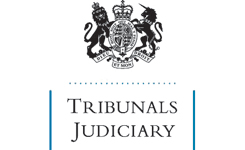|
Notes:
|
Housing benefit – rent restrictions – exemption where housing-related support provided – whether provider “acting on behalf of landlord”
The three claimants, who had learning difficulties, shared a house of which the landlord was Rivendell Lake Housing Association Limited (Rivendell). Rivendell held the property under a 30-year lease from Supported Living Limited (SLL). Support for the claimants was provided by Citizenship First (CF). There was a written agreement between SLL, Rivendell and CF, but Rivendell had no contractual or statutory obligation to provide support and had not engaged CF to provide it. The three claimants applied for housing benefit. The local authority restricted the eligible rent to the local reference rent, applying the version of regulation 11 of the Housing Benefit (General) Regulations 1987 which had been in force since 2 January 1996. The claimants argued on appeal that their accommodation was exempt by virtue of the savings provision in regulation 10 of the Housing Benefit (General) Amendment Regulations 1995. That regulation defines exempt accommodation as including accommodation provided by certain bodies where the landlord or a person acting on its behalf also provides the claimant with care, support or supervision. The issue for the tribunal was whether the care provider (CF) was acting on Rivendell’s behalf in providing housing related support. The tribunal found that the care, support and supervision were provided by CF for and on behalf of Sheffield City Council social services department and dismissed the appeal. It was argued for the claimants that the tribunal should have adopted a wider interpretation, in which accommodation is “exempt accommodation” where a landlord is participating in arrangements for the provision of supported accommodation and, if the care provider did not provide the care, the landlord would have to ensure it was received from another source.
Held, dismissing the appeals, that:
1. in the absence of any contractual or statutory obligation on the part of Rivendell to provide the care, support and supervision, and given that Rivendell did not engage or instruct CF to provide it, it could not be said that CF were “acting on [Rivendell’s] behalf”, within the meaning of that expression in regulation 10(6) of the 1995 Regulations (paragraphs 30 to 33);
2. it was not self-evident that if CF ceased to provide the care, Rivendell would in practice have to seek to ensure that it was received from another source, since the Council appeared to have statutory obligations to provide the necessary care, but even if in practice Rivendell would wish to take steps to ensure such provision, that would not mean that the provider was acting on behalf of Rivendell (paragraphs 34 to 38);
3. the agreement provided that CF would be responsible for “all necessary care, support and supervision” and a consequence of the wider interpretation would appear to be that not only the strictly housing-related support, but also the personal care and supervision, was being provided by CF “on [Rivendell’s] behalf”, a consequence for which the claimants did not contend (paragraph 39);
4. there was a crucial distinction between the situation where the housing provider contracts the provision of care to a sub-contractor and an arrangement such as that in the present case, and the fact that the needs of the claimants for specialist accommodation are the same in the two situations cannot justify giving the words “acting on its behalf” a meaning which they cannot reasonably bear (paragraphs 40 to 45);
5. Gaspet Ltd v Elliss (Inspector of Taxes) [1985] 1 WLR 1214 was support for the view that, to fall within the definition in regulation 10(6), the care must be provided either by the landlord or by a person acting in some sense for him and it is clearly not sufficient that the provision of the care benefits the landlord, even if that benefit is intended (paragraphs 46 to 52).
|
